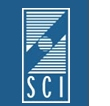 |
|

Process and Content
Uri Haber-Schaim
Many states and local schools districts include in their K–12 curriculum one or more units that address the "Nature of Science." Such units are supposed to give the students the opportunity to investigate a question of significance by designing and conducting an experiment. The students are expected to construct and interpret graphical data, apply the "scientific method" and become aware of the historical and human aspects of science. Beyond this "nature of science" unit, the content which students have to cover and on which they will be tested is "a mile wide and an inch deep." Thus, during most of the science course the nature of science will be ignored. This dichotomy will not work.
Process and content in science education cannot be taught separately. In order to interpret data and communicate them, one must have data worth communicating. To form a useful hypothesis one must have acquired some knowledge. Without such knowledge, an hypothesis becomes a wild guess. Students cannot be expected to plan a whole experiment before they have acquired some skills and have made many small decisions as part of their experimental work. This observation was made by an IPS teacher in a most convincing way. Every year he asks his students after the completion of the "Sludge Test" if they could have passed the test at the beginning of the school year. He said that invariably the students are amazed at how much they had learned during half a school year.
In IPS, process and content are inseparable, and both are developed along a well-defined story line. The analytical skills, laboratory skills, the ability to work alone and in teams, and knowledge learned in the early parts of the course are used and applied throughout the course. Skills and knowledge learned for a purpose are retained by the students. What is learned in IPS does not have to be relearned in later courses. This fact is attested to by most Chemistry and Biology teachers who have former IPS students in their classes.